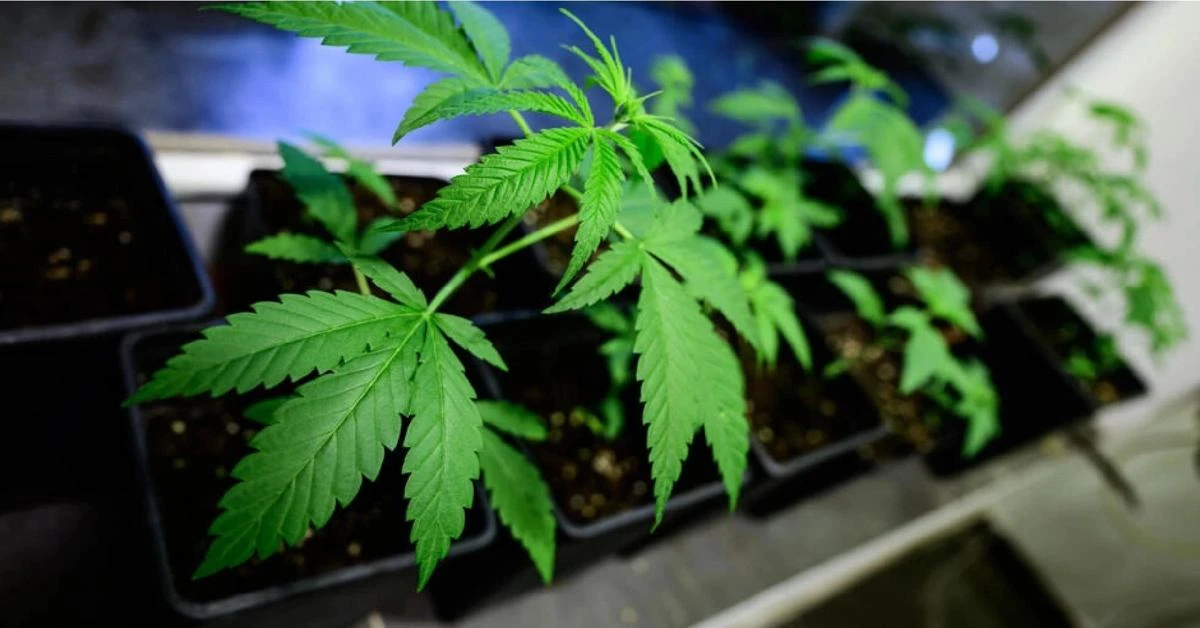Germany to legalize recreational cannabis despite opposition

Germany has become the largest EU member state to legalize recreational cannabis, despite strong opposition from political rivals and medical groups
In the initial phase of the controversial new legislation, individuals aged 18 and above are now permitted to possess 25 grams of dried cannabis and grow up to three marijuana plants at their residences.
These modifications position Germany among the countries in Europe with some of the most lenient cannabis regulations, aligning with Malta and Luxembourg, which sanctioned recreational use in 2021 and 2023 respectively.
In contrast, the Netherlands, famous for its tolerant stance toward the substance, has recently adopted a stricter strategy to combat cannabis tourism.
At the stroke of midnight when the law came into effect, a multitude of individuals celebrated near Berlin’s iconic Brandenburg Gate, with many of them lighting joints as a symbol of what one participant, a delighted 25-year-old named Niyazi, described as “a touch of added liberty.”
As the subsequent phase of the legal overhaul, starting from July 1, it will be viable to lawfully acquire marijuana through “cannabis clubs” within the nation.
These regulated groups will be permitted to have a maximum of 500 members each and will have the authority to dispense up to 50 grams of cannabis per individual monthly.
Until this transition, in case of a street inspection, consumers are advised by Georg Wurth, the director of the German Cannabis Association, not to disclose the source of their cannabis to law enforcement.
‘Calamity’
The original proposal to sell cannabis through licensed stores was abandoned due to opposition from the EU. However, a secondary law is in progress to experiment with the sale of the substance in designated regions.
The German government, a coalition led by Chancellor Olaf Scholz’s Social Democrats, contends that legalization will assist in curbing the expanding illicit market for this popular substance.
Nevertheless, health organizations have expressed apprehensions that legalization might lead to heightened usage among adolescents, who are at the highest health jeopardy.
Experts have cautioned that cannabis use among young individuals can impact the development of the central nervous system, elevating the likelihood of developing psychosis and schizophrenia.
Katja Seidel, a therapist at a center for cannabis addiction among young people in Berlin, labeled the law as a “catastrophe” from their perspective in an interview with Agence France-Presse (AFP).
Even Health Minister Karl Lauterbach, a medical professional, has emphasized that cannabis consumption, particularly among young people, can be “hazardous.”
The government has pledged an extensive awareness campaign to highlight the hazards and enhance support programs. It has also emphasized that cannabis will continue to be prohibited for those under 18 and within a 100-meter radius of schools, kindergartens, and playgrounds.
‘Responsible’
The legislation has also drawn criticism from law enforcement officials, who are apprehensive about the challenges of enforcement.
Alexander Poitz, vice president of the GdP police union, expressed concerns about potential conflicts arising from uncertainties on both sides once the law takes effect on April 1.
Another potential complication is the retroactive amnesty for cannabis-related offenses, posing an administrative dilemma for the legal system.
As per the German Judges’ Association, the amnesty could potentially apply to over 200,000 cases that would necessitate review and processing.
Friedrich Merz, the conservative opposition leader, has stated his intent to promptly repeal the law if he and his party assume power after the national elections in 2025.
However, Finance Minister Christian Lindner of the liberal FDP has characterized legalization as a “responsible” decision that is preferable to pushing individuals towards the illicit market.
Lindner reassured the public on ARD, a public broadcaster, that the new law “will not result in chaos.”



